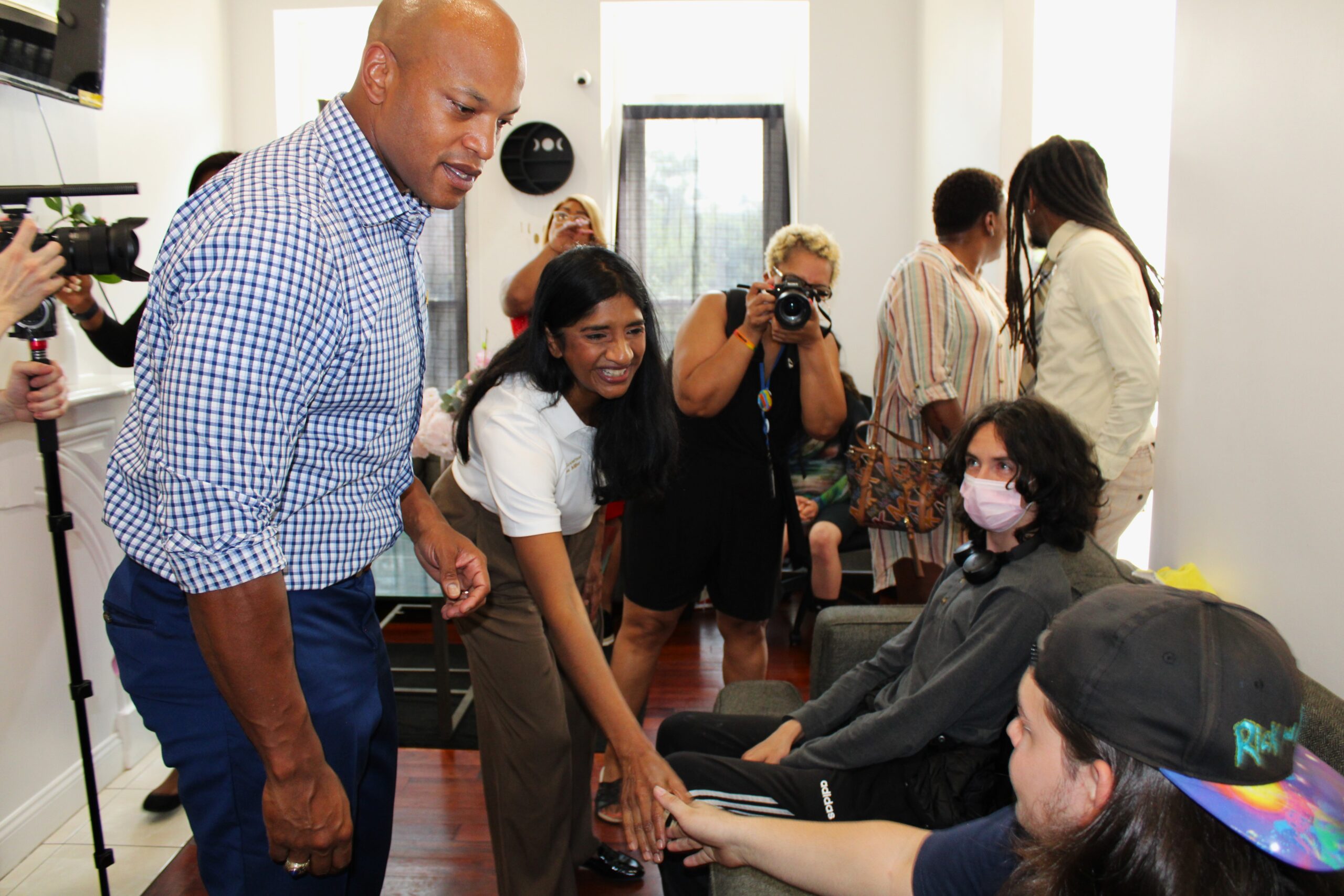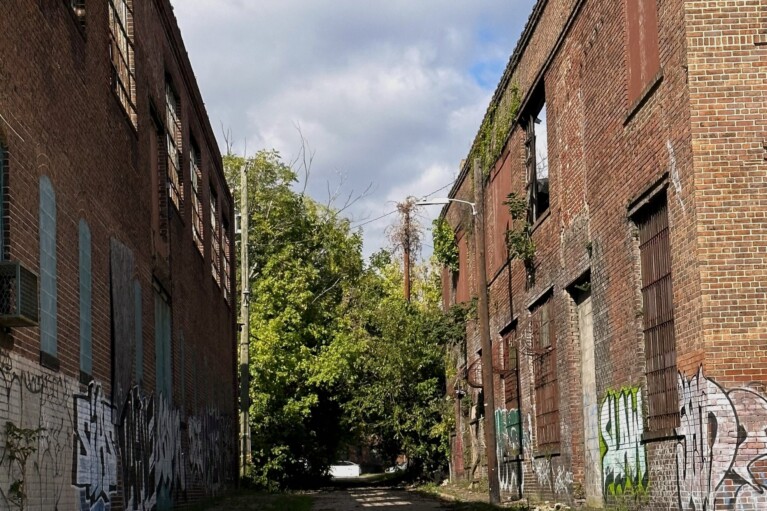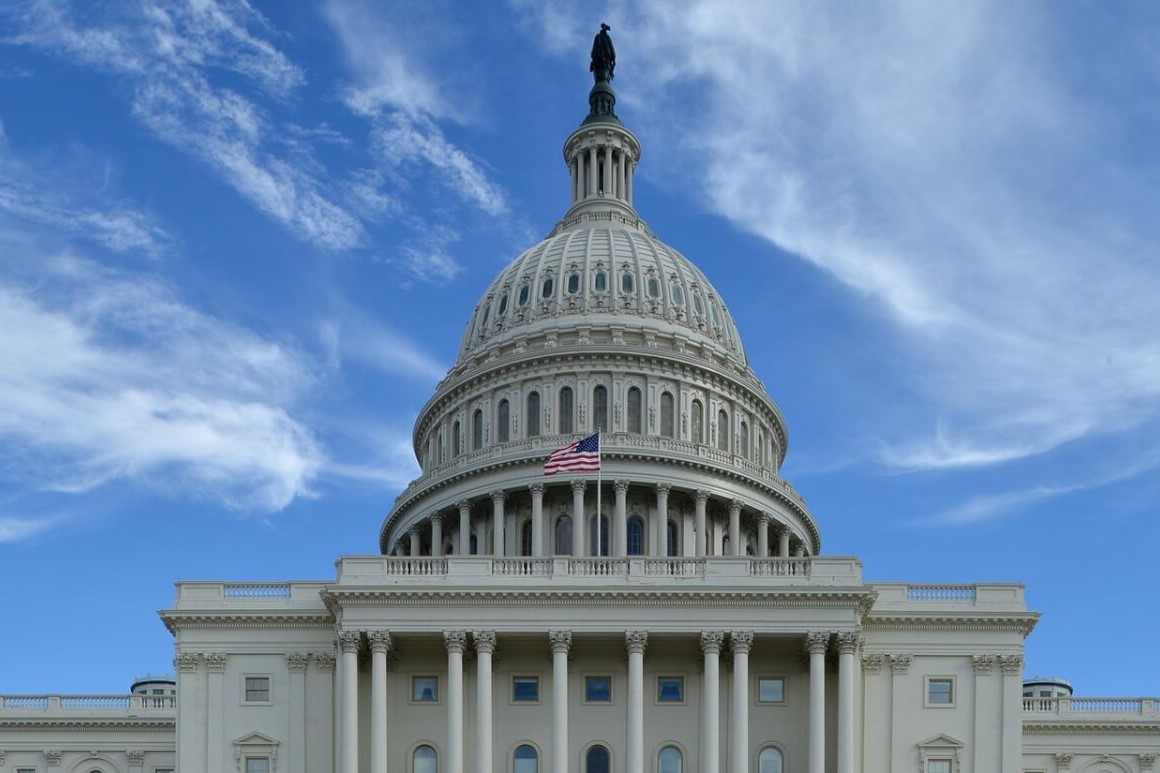Moore, Miller tour nonprofit that helps shelter LGBTQ+ youth who flee hostile family environments

Gov. Wes Moore (D) and Lt. Gov. Aruna Miller (D) got a first-hand look Friday at the operations of Baltimore Safe Haven, a nonprofit drop-in resource center for transgender people and other members of the LGBTQ+ community to help those struggling with food, housing and other necessities.
Friday afternoon, the state’s top officials toured temporary housing facilities, where LGTBQ+ youth in dire straits can seek resources to get back on their feet. They were shown communal kitchens and bedrooms with space for one to three residents. They met with organizers to get a feel for their day-to-day work and challenges.
Moore said it was important to hear first-hand experience from the organizers as well as those seeking resources because “in order for our state to be able to grow and prosper, it means everyone needs to have an opportunity to grow and prosper.”
“It was enlightening and it was inspiring. The pain that so many in our trans community and our LGBTQIA+ community are enduring is real,” Moore told Maryland Matters.
During the tour, Moore crossed paths with young folks staying in the temporary housing unit as they search for jobs and housing opportunities.
“I had a chance to meet trans individuals who came from Tulsa, came from Mississippi, who came from Texas. People who literally got on buses, left their families, left their communities, because they heard that Maryland was a safe haven,” Moore told reporters.
Data suggests that significant portion of homeless youth identify as part of the LGBTQ+, and many choose to runaway to escape a hostile family environment.
According to a report from the Trevor project, about 28% of LGBTQ youth reported to have experienced housing instability or homelessness at some point in their lives. Reported homelessness rates are higher among transgender and nonbinary individuals, “including 38% of transgender girls/women, 39% of transgender boys/men, and 35% of nonbinary youth,” the report says.
It’s difficult to run a shelter for LGBTQ+ youth and adults. In March 2022, the nonprofit was the target of vandalization, when the organizers found violent anti-LGBTQ+ speech spray-painted on their building, WBAL reported at the time. It frightened some of the organization leaders, who themselves are transgender or otherwise a part of the LGBTQ+ community.
And the Baltimore Sun reported that the nonprofit has seen an increase in interest after the Moore administration declared Maryland to be a sanctuary state for transgender individuals, leading to a shortage in housing opportunities.
As some states consider and pass laws that are hostile to gay and trans individuals, many LGBTQ+ people are fleeing to more supportive states such as Maryland.
During the tour, Iya Dammons, the founder and executive director of Baltimore Safe Haven, told the governor that the project needs more funding to continue its efforts.
“I’m trying to get on that budget,” she joked with Moore and Miller. She explained that many of the LGBTQ+ individuals who use the Baltimore Safe Haven have mental health needs and trauma from abusive families.
But the issue of the budget is going to be a tough one for Moore, as the state faces a challenging fiscal year. Moore previously stated that he and the legislature will likely make difficult financial decisions in the 2024 General Assembly session.
“We knew coming in that the state budget was going to have trying times ahead,” he told Maryland Matters. But he said the state will be able to make tough financial choices while still pushing forward on the administration’s priorities.
The Moore-Miller administration has been making an effort to demonstrate support of the LGBTQ+ community in Maryland.
Earlier this year, Moore signed what’s called the Trans Health Equity Act, which expands Medicaid coverage for gender-affirming health care “consistent with current clinical standards of care,” including hormone therapy and puberty blockers, voice training and therapy, and body alterations that affirm someone’s gender identity.
In June, Moore issued an executive order to declare that state agencies will protect transgender individuals if they are being legally persecuted by law enforcement from other states.
The order said that Maryland agencies shall “refuse to surrender, on demand of the executive authority of any other state, any person who…is charged with a criminal violation of a law of another state where the violation alleged involves the provision of, assistance with, securing of, or receipt of” gender-affirming treatment permitted under Maryland law.
Moore told reporters that his administration is working to expand on previous efforts, but was light on the details of what those additional measures might look like.
“We’ve already been working with partners and advocates, just like Baltimore Safe Haven, in preparation for the next legislative session,” he said.
He also noted that there are other ways to push LGBTQ+ initiatives forward, such as the June executive order.




 Creative Commons Attribution
Creative Commons Attribution